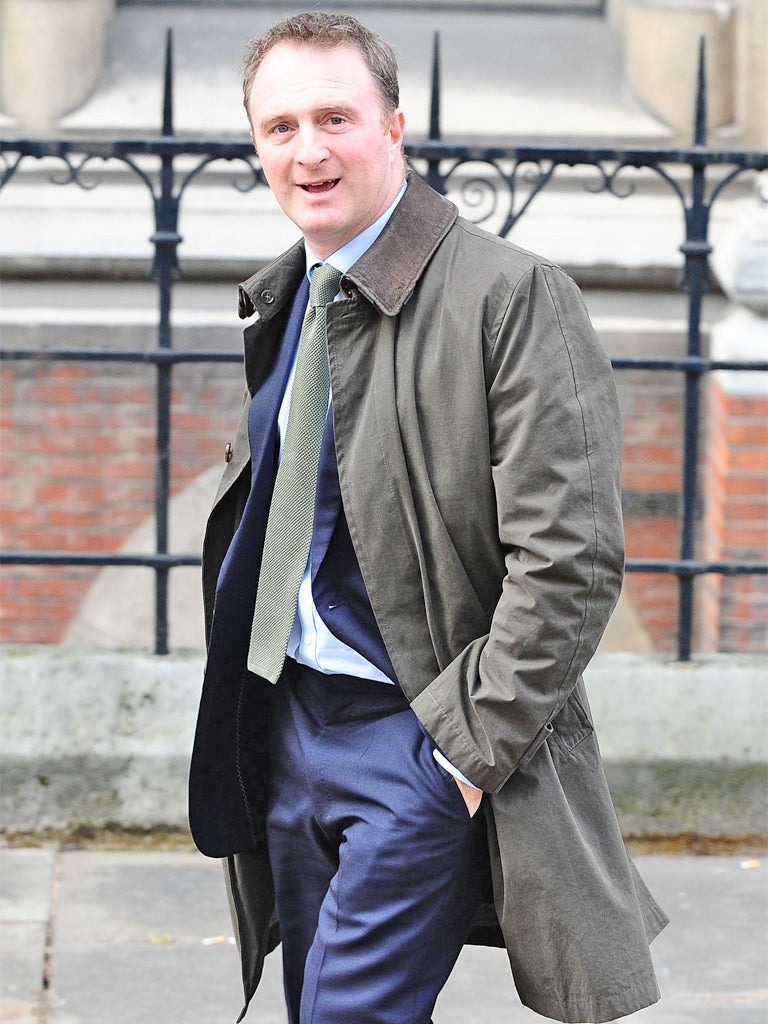Murdoch does not interfere, insists editor of The Times
Leveson Inquiry told that tycoon would rather talk about eurozone crisis than editorial content

Rupert Murdoch's reputation as a forceful, hands-on proprietor is undeserved, the editors of The Times and The Sunday Times said yesterday, telling the Leveson Inquiry he rarely called and had no influence over their decisions.
Tom Mockridge, who took over from Rebekah Brooks as News International's chief executive last July, also confirmed this view of Mr Murdoch. He said he sometimes spoke to his fellow Antipodean a couple of times a week, or sometimes not at all.
The media tycoon's main interest was business and advertising, contrary to wide media perception, he said. When they did discuss the news, Mr Mockridge said his boss was interested in a broad range of issues about "what is current in British society" – including phone hacking and the Leveson Inquiry itself.
James Harding, who has edited Mr Murdoch's flagship title, The Times, since December 2007, said his encounters with his proprietor varied. Weeks of silence could go by, he said, then "you'll get a couple of calls in a week".
As part of the political deal with the government that allowed Mr Murdoch to purchase The Times and Sunday Times in 1981, assurances were made that the titles would remain free from proprietorial influence. Harding told the inquiry that Mr Murdoch had stuck to his promise. As Christmas approached last year, he said, Mr Murdoch's calls to him increased because he was keen to know more about the eurozone crisis.
John Witherow, one of the Murdoch empire's longest-serving editors, heading The Sunday Times since 1995, was asked by the inquiry's counsel, Robert Jay QC, what influence Mr Murdoch had over his paper. "He doesn't have any," the editor replied. He said Mr Murdoch only called periodically, sometimes not for weeks, and when he did the conversation was usually "very general".
The inquiry also heard that someone working for The Sunday Times called Abbey National pretending to be Gordon Brown to obtain details about the former prime minister's finances. Mr Witherow confirmed that the paper "blagged" information from the bank as part of an investigation in 2000 into the then-chancellor's purchase of a flat from the estate of the late media baron Robert Maxwell. The newspaper has argued that the story was in the public interest.
The Times has been criticised for its coverage of the phone-hacking scandal at fellow News International title the News of the World, which many found to be soft and minimal. Harding said: "Looking back, I certainly wish we had got on the story harder, earlier."
All three questioned any move towards a statutory form of press regulation, expressing concerns this would lead to greater political control of the British press. Harding said he did not want the UK to become a country where the Prime Minister decided what went into newspapers, adding that any regulatory act of Parliament – which he called the "Leveson Act" – would stifle the press.
Later, in his third appearance before the inquiry, Guardian editor Alan Rusbridger said the press should welcome a law change that underpinned a new adjudication system, as this would make it easier and cheaper to settle privacy and libel claims.
Hislop: 'Enforcement of existing laws could have stopped hacking'
Ian Hislop had news for the Leveson Inquiry yesterday. The Private Eye editor and panellist of BBC television's irreverent news quiz, said there was no need for statutory rules to control Britain's press because phone hacking, paying police officers and extremes of contempt of court were already covered by existing laws which should have been deployed to halt the spreading scandal.
Mr Hislop said: "A reasonable editor could not have thought, 'I must hack into a murdered girl's phone'."
But Mr Hislop said he was wary of statutory regulation: "If the state regulates the press, then the press no longer regulates the state."
He blamed what he described as the over-close relationship between News International executives, leading politicians and the police. He told the inquiry: "News International thought it could get away with whatever it liked, because the Murdoch family was deeply embedded in our political top class."
He said that if the Prime Minister employs former News of the World editor Andy Coulson, left, as his communications director, "News International will think 'We are top of the world, nothing can stop us'."
